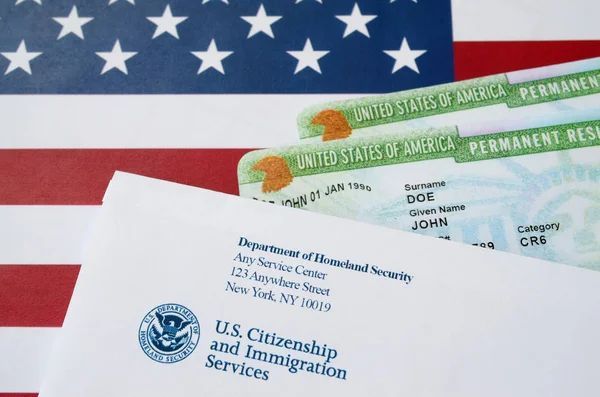🗣️ Fluent in English, Spanish & Portuguese 🌍
How does the Divisibility affect Removability?
Pesikan v. Attorney Gen., No. 20-3307 (3d Cir. Sep. 26, 2023)
In the case of Srecko Pesikan v. Attorney General United States of America, the petitioner, Srecko Pesikan, challenged the Board of Immigration Appeals' decision that his 2018 Pennsylvania conviction for driving under the influence (DUI) of marijuana constituted an offense involving a "controlled substance," as defined in the federal Controlled Substances Act (CSA), making him removable under the Immigration and Nationality Act (INA).
Pesikan is a citizen of Bosnia and Herzegovina who entered the United States as a refugee with his family in 1998 and gained lawful permanent resident status. In 2017, he caused a car accident while under the influence of drugs and alcohol. He was subsequently convicted of six counts of DUI, including one for driving under the influence of marijuana.
The central issue was whether Pesikan's Pennsylvania DUI conviction could be considered an offense involving a "controlled substance" under the CSA, which would lead to his removal under the INA. The court determined that the Pennsylvania DUI statute was indivisible and not a categorical match for the federal CSA offenses. Therefore, Pesikan could not be removed under the INA for committing a federal controlled substance offense based on his state conviction.
As a result of this decision, Pesikan's petition for review was granted, reversing the order for removal based on his DUI conviction.
Srecko Pesikan v. Attorney General United States of America primarily relies on the following legal principles and cases:
1. Categorical Approach and Modified Categorical Approach: The court relies on the foundational principles of the "categorical approach" and "modified categorical approach" in analyzing whether a state conviction qualifies as a removable offense under federal immigration law. These approaches are key to the court's decision-making process.
2. Mathis v. United States: The court references Mathis v. United States, 579 U.S. 500 (2016), to explain the distinction between divisible and indivisible statutes when applying the modified categorical approach. Mathis is a significant Supreme Court case that clarifies the framework for analyzing statutes with multiple elements.
3. Descamps v. United States: The court also cites Descamps v. United States, 570 U.S. 254 (2013), another Supreme Court decision that provides guidance on the application of the modified categorical approach in cases where a statute may be divisible.
4. Mellouli v. Lynch: The court references Mellouli v. Lynch, 575 U.S. 798 (2015), to underscore the importance of applying the categorical approach to determine whether a state conviction has immigration consequences.
5. Commonwealth v. Given: This Pennsylvania Superior Court case is cited as an example of Pennsylvania case law supporting the merger of DUI convictions under § 3802(d)(1) in sentencing, which is indicative of the indivisibility of the statute. Commonwealth v. Given, 244 A.3d 508 (Pa. Super. Ct. 2020), is relied upon to establish that different subsections of the DUI statute do not represent distinct offenses but rather diverse means of committing the same offense.
6. Commonwealth v. Westlake: Another Pennsylvania Superior Court case, Commonwealth v. Westlake, 295 A.3d 1281 (Pa. Super. Ct. 2023), is cited to reinforce the concept that DUI convictions for multiple drugs should merge at sentencing. This case supports the argument that the Pennsylvania DUI statute is indivisible.
These cases and legal principles are used to construct the court's analysis and support its conclusion that Pesikan's Pennsylvania DUI conviction did not qualify as a removable offense under the Immigration and Nationality Act (INA) due to the indivisibility of the state statute.
Holding:
The government drafted charging instrument cannot add to, or subtract from, the elements of a statutory crime. A conviction under section § 3802(d)(1)(i) did not support removability in this case.
Below is a list of all cases and statutes mentioned in the case:
Cases:
1. Srecko Pesikan v. Attorney General United States of America
2. Commonwealth v. Westlake
3. Commonwealth v. Given
4. Commonwealth v. Powell
5. Larios v. Attorney General
6. Commonwealth v. Swavely
7. Mellouli v. Lynch
8. Hillocks v. Attorney General
9. Singh v. Attorney General
10. Descamps v. United States
11. Moncrieffe v. Holder
12. Mathis v. United States
13. Cowher v. Kodali
14. Tucker v. United States
Statutes:
1. Immigration and Nationality Act of 1952, 8 U.S.C. § 1227(a) ("INA")
2. Federal Controlled Substances Act ("CSA")
3. Pennsylvania's Controlled Substance, Drug, Device and Cosmetic Act, 35 Pa. Cons. Stat. § 780-113
4. Pennsylvania DUI statute, 75 Pa. Cons. Stat. § 3802

By Juan Torrico
•
January 16, 2025
Discover the latest updates on Temporary Protected Status (TPS) as new countries are added to the list, providing crucial support for individuals facing crises. Learn about eligibility, application processes, and the benefits of TPS to secure your future in the U.S.
CONTACT US
950 S. Winter Park Dr., Suite 207
Casselberry, FL 32707
PRACTICE AREAS










